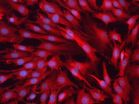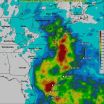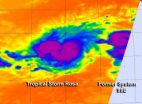(Press-News.org) Negatively framed political attitudes ("I don't like Obama") are stronger than positively framed attitudes ("I like Romney"), and this effect is strengthened when people think more deeply about the issues involved.
That is the finding of a paper published in the latest issue of the British Journal of Social Psychology by George Bizer, a psychology professor at Union College in Schenectady, N.Y.
Bizer and his co-authors Iris Žeželj (University of Belgrade) and Jamie Luguri (Yale University) presented participants with information about two fictional (though ostensibly real) candidates – one conservative, one liberal – for a position on a government board.
After reading about the two candidates, some participants were asked if they 'supported' or 'opposed' the liberal candidate and some were asked if they 'supported' or 'opposed' the conservative. When the candidates were vying for a local government board, participants who were led to frame their opinions negatively – regardless of their underlying preference – expressed more certainty about their attitudes than did participants who were led frame their opinions positively. When the candidates were vying for a distant government board, the effect did not emerge.
Follow-up experiments replicated these findings: Experiment 2 showed that opposers were more certain than supporters, but only when the participants were able to think carefully about the candidates, while Experiment 3 showed that the effect generalized to perceived importance.
Dr Bizer says: "Our prior research showed that framing an opinion in terms of opposition yields stronger attitudes than does framing it in terms of support. The most interesting point from our latest research is that this effect is actually stronger when people process the messages more deeply – when they are motivated and have been able to think about the issue. But when people are not motivated and able, the effect goes away. So, perhaps counter-intuitively, the people who care the most about the issues or candidates seem more likely to be affected by the bias."
###
For further information contact Phil Wajda, director of media relations at Union College (518-388-8394) or wajdap@union.edu; or the British Psychological Society media centre, tel: 0116 252 9500, email: mediacentre@bps.org.uk
About the British Journal of Social Psychology
The British Journal of Social Psychology publishes original papers in all areas of social psychology. Visit wileyonlinelibrary.com/journal/bjso for more information.
About the British Psychological Society: The British Psychological Society is the representative body for psychology and psychologists in the UK.
The Journals of the British Psychological Society form an essential part of the Society's mission to advance and disseminate psychological knowledge. With a publishing history spanning over 100 years, our journals portfolio is at the forefront of the psychology community with international contributions and readership. For more information, please visit www.bps.org.uk
How the negative trumps the positive in politics
New study published in British Journal of Social Psychology
2012-11-02
ELSE PRESS RELEASES FROM THIS DATE:
New light on the genetic basis of inflammatory diseases
2012-11-02
In one of the largest studies of its kind ever conducted, an international team of scientists has thrown new light on the genetic basis of the inflammatory bowel diseases (IBD). Crohn's disease and ulcerative colitis, the two most common forms of IBD, are chronic inflammatory digestive disorders affecting 230,000 Canadians. Dr. John Rioux, researcher at the Montreal Heart Institute and Associate Professor of Medicine at the Université de Montréal, is one of the researchers who have identified 71 genetic regions newly associated with inflammatory bowel disease (IBD), increasing ...
Combination treatment may improve survival of breast cancer patients with brain metastases
2012-11-02
Adding an angiogenesis inhibitor to treatment with a HER2-inhibiting drug could improve outcomes for patients with HER2-positive breast cancer who develop brain metastases. In their report published online in PNAS Plus, Massachusetts General Hospital (MGH) investigators report the first preclinical study combining antiangiogenic and anti-HER2 drugs in an animal model of brain metastatic breast cancer.
"We have shown dramatic improvement in survival by slowing the growth of brain metastatic, HER2-amplified breast cancer," says Rakesh Jain, PhD, director of the Steele ...
Softening arteries, protecting the heart
2012-11-02
PHILADELPHIA - Arterial stiffening has long been considered a major risk factor for cardiovascular disease. Keeping arteries soft and supple might reduce disease risk, but the mechanisms of how arteries stave off hardening has remained elusive.
Researchers from the Perelman School of Medicine, University of Pennsylvania, Wistar Institute, and The Children's Hospital of Philadelphia have discovered that the protein apolipoprotein E (apoE) plays a major role in maintaining arterial softness by suppressing production of the extracellular matrix, a network of connective ...
Iowa State, Ames Lab researchers find 3 unique cell-to-cell bonds
2012-11-02
AMES, Iowa – The human body has more than a trillion cells, most of them connected, cell to neighboring cells.
How, exactly, do those bonds work? What happens when a pulling force is applied to those bonds? How long before they break? Does a better understanding of all those bonds and their responses to force have implications for fighting disease?
Sanjeevi Sivasankar, an Iowa State assistant professor of physics and astronomy and an associate of the U.S. Department of Energy's Ames Laboratory, is leading a research team that's answering those questions as it studies ...
NASA adds up Hurricane Sandy's rainfall from space
2012-11-02
NASA's Tropical Rainfall Measuring Mission, or TRMM, satellite acts as a rain gauge in space as it orbits the Earth's tropics. As TRMM flew over Hurricane Sandy since its birth on Oct. 21 it was gathering data that has now been mapped to show how much rain the storm dropped along the U.S. eastern seaboard.
Much of the recent deadly flooding along the northeastern United States coastlines was caused by super storm Sandy's storm swell. Strong winds from Sandy persistently pushed Atlantic Ocean waters toward the coast. High tides that occurred at the same time also magnified ...
NASA sees Tropical Storm Rosa's rains southeast of center
2012-11-02
Wind shear is pushing the bulk of Tropical Storm Rosa southeast of the storm's center, and that's evident on infrared imagery from NASA's Aqua satellite. Meanwhile System 99E, that was trailing behind Rosa on Oct. 31, has now "given up the ghost" as a result of that same wind shear.
When NASA's Aqua satellite flew over Tropical Storm Rosa at 5:41 a.m. EDT (0951 UTC) on Nov. 1, 2012 the Atmospheric Infrared Sounder (AIRS) instrument took an infrared picture of Tropical Storm Rosa and remnants of System 99E. The AIRS data showed the strongest convection (rising air that ...
Trickle-down anxiety: Study examines parental behaviors that create anxious children
2012-11-02
Parents with social anxiety disorder are more likely than parents with other forms of anxiety to engage in behaviors that put their children at high risk for developing angst of their own, according to a small study of parent-child pairs conducted at Johns Hopkins Children's Center.
Authors of the federally funded study say past research has linked parental anxiety to anxiety in children, but it remained unclear whether people with certain anxiety disorders engaged more often in anxiety-provoking behaviors. Based on the new study findings, they do. A report on the team's ...
NASA sees Tropical Depression Nilam blanket southern India
2012-11-02
After Tropical Cyclone Nilam made landfall in southeastern India NASA's Terra satellite passed overhead and saw the storm's clouds blanket the entire southern portion of the country from Chennai southward.
On Nov. 1 at 05:50 UTC (1:50 a.m. EDT), the Moderate Resolution Imaging Spectroradiometer (MODIS) instrument that flies aboard NASA's Terra satellite captured a visible image of Tropical Depression Nilam.
The MODIS image showed that Nilam's clouds stretched as far north as Andra Pradesh, a state in east central India. It covered the states of Goa and Karnataka in ...
Church-going teens go further with school
2012-11-02
For many American teens, the road to college goes through the chapel.
Sociologists from Brigham Young University and Rice University found religiously-affiliated youth are 40 percent more likely to graduate high school than their unaffiliated peers and 70 percent more likely to enroll in college.
The researchers note that teens' fellow church-goers are an important factor, serving as mentors who help teens set their sights high.
"Youth have a unique chance to form relationships with peers and mentors outside of their classroom at school or their neighborhood at home," ...
Suomi NPP satellite captures Hurricane Sandy's Mid-Atlantic blackout
2012-11-02
The Suomi National Polar-orbiting Partnership (NPP) satellitecaptured a night-time view of New York City, New Jersey and eastern Pennsylvania that revealed the extent of the power outages caused from Hurricane Sandy's landfall on October 29. Suomi NPP is a partnership between NASA, the National Oceanic and Atmospheric Administration (NOAA), and the U.S. Department of Defense.
The Visible Infrared Imaging Radiometer Suite (VIIRS) on Suomi NPP captured a night-time view of the Mid-Atlantic on the morning of Nov. 1, 2012,revealing areas where power has not been currently ...
LAST 30 PRESS RELEASES:
Scientists reveal our best- and worst-case scenarios for a warming Antarctica
Cleaner fish show intelligence typical of mammals
AABNet and partners launch landmark guide on the conservation of African livestock genetic resources and sustainable breeding strategies
Produce hydrogen and oxygen simultaneously from a single atom! Achieve carbon neutrality with an 'All-in-one' single-atom water electrolysis catalyst
Sleep loss linked to higher atrial fibrillation risk in working-age adults
Visible light-driven deracemization of α-aryl ketones synergistically catalyzed by thiophenols and chiral phosphoric acid
Most AI bots lack basic safety disclosures, study finds
How competitive gaming on discord fosters social connections
CU Anschutz School of Medicine receives best ranking in NIH funding in 20 years
Mayo Clinic opens patient information office in Cayman Islands
Phonon lasers unlock ultrabroadband acoustic frequency combs
Babies with an increased likelihood of autism may struggle to settle into deep, restorative sleep, according to a new study from the University of East Anglia.
National Reactor Innovation Center opens Molten Salt Thermophysical Examination Capability at INL
International Progressive MS Alliance awards €6.9 million to three studies researching therapies to address common symptoms of progressive MS
Can your soil’s color predict its health?
Biochar nanomaterials could transform medicine, energy, and climate solutions
Turning waste into power: scientists convert discarded phone batteries and industrial lignin into high-performance sodium battery materials
PhD student maps mysterious upper atmosphere of Uranus for the first time
Idaho National Laboratory to accelerate nuclear energy deployment with NVIDIA AI through the Genesis Mission
Blood test could help guide treatment decisions in germ cell tumors
New ‘scimitar-crested’ Spinosaurus species discovered in the central Sahara
“Cyborg” pancreatic organoids can monitor the maturation of islet cells
Technique to extract concepts from AI models can help steer and monitor model outputs
Study clarifies the cancer genome in domestic cats
Crested Spinosaurus fossil was aquatic, but lived 1,000 kilometers from the Tethys Sea
MULTI-evolve: Rapid evolution of complex multi-mutant proteins
A new method to steer AI output uncovers vulnerabilities and potential improvements
Why some objects in space look like snowmen
Flickering glacial climate may have shaped early human evolution
First AHA/ACC acute pulmonary embolism guideline: prompt diagnosis and treatment are key
[Press-News.org] How the negative trumps the positive in politicsNew study published in British Journal of Social Psychology





